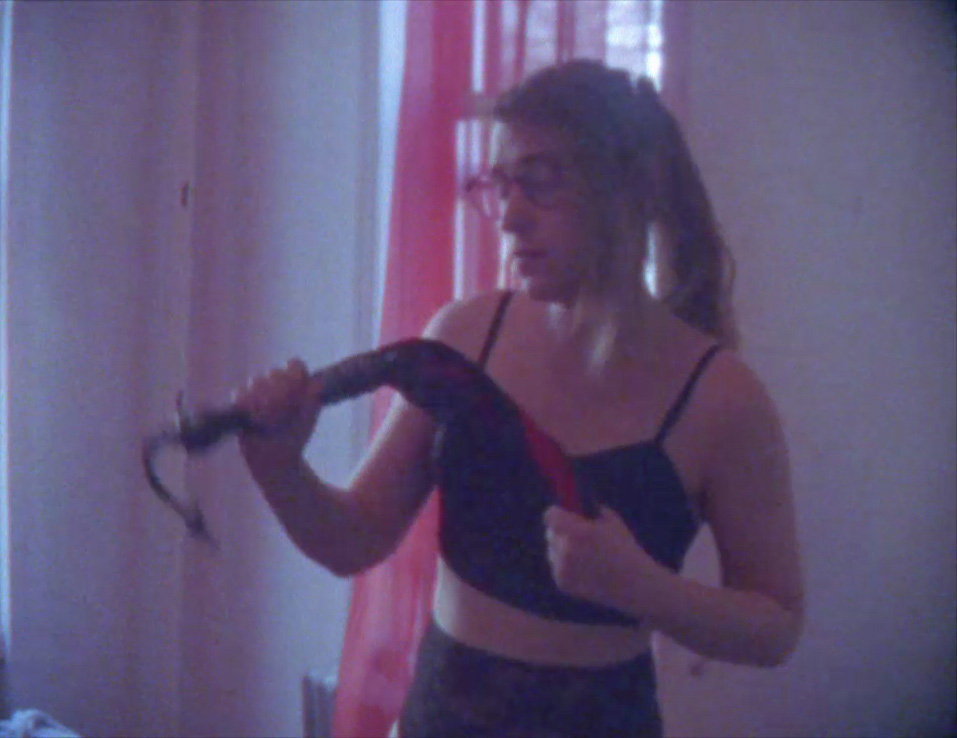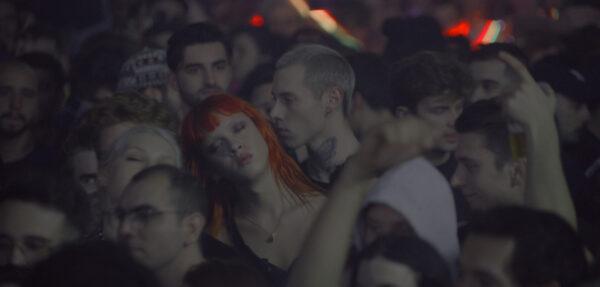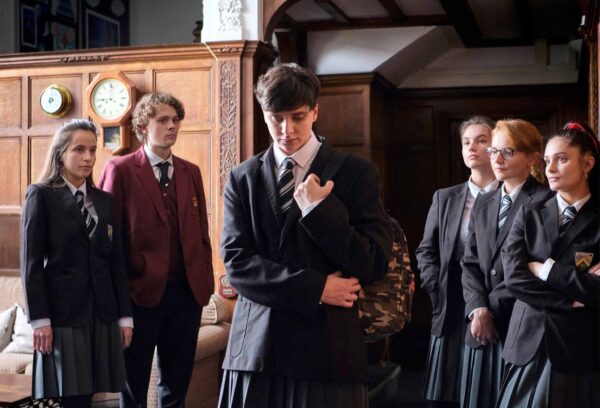Contrasting Double Features
Contrast Programming and Double Features To Elevate the Modern Queer Short Film Experience
In this paper, Yuna Hoch argues that the combination and customisation of contrast programming and double features can elevate the queer short film experience, and can result in an approachable way into complex topics.

Introduction
When curating a programme, there are many different approaches to reach your audience, while creating the biggest impact possible. Playing movies back-to-back in the form of double features is nothing new, but it has not been popular for a long time. The same applies to the idea of contrast programming. But what happens if you combine the two concepts, modify them, play on their strengths, and apply them to shorts in a new contemporary way?
This paper will focus on short films, programming, and curating. With a brief theoretical introduction, I am taking on a rather practical approach by creating what I like to call contrasting double features. 11 Despite the term double features referring to feature-length films–and not short films–I want to actively make use of it here in a more general way; exactly two films playing back-to-back. I would argue that most people can already get a vague idea of what a contrasting double feature might be from the name alone. If I coined a new term here, this wouldn’t be the case, and I don’t want to burden any reader with more new terminology than necessary. Apart from that, contrasting double feature does have a nice ring to it. ↩︎ I will discuss my selection of the two shorts, in what way they contrast each other, and how we can improve on my selection. This will result in three different contrasting double features that all revolve around queer themes to set the frame. I will do this to solidify the following thesis:
The combination and customisation of contrast programming and double features can elevate the queer short film experience and can result in an approachable way into complex topics.
To fully achieve this, I will first go the traditional route of contrast programming, then refine it to current curating standards, and then experiment with the concept further to elevate the program. These three double features are not intended to be presented together, but rather stand on their own. Additionally, I suggest watching the double features first before reading my analysis of them. The analysis of the actual effect of the contrasting double features is only hypothetical. Unfortunately, it would go beyond the possibilities of this paper to present and evaluate these with test audiences. My assumptions are merely based on other texts and my personal experiences.
On a final note, this paper is not here to discuss and question the fundamentals of the LGBTQIA+ community. I am aware that everyone has their own experience, and I am not trying to take away from that. In the second chapter, I will provide more detailed information regarding this matter.
Editor’s note
by Laura Walde
In the spring semester of 2022, with my Ph.D. in film studies on the subject of brevity in film recently completed, I taught a seminar for Bachelor students at the Department of Film Studies of the University of Zurich. Twenty-five students signed up for this course that promised to introduce the world of short films from the perspective of its institutional linkages. Starting from the limited length of the short film, its marginalisation in film theoretical discourse, and its circulation in different institutional contexts, the seminar was dedicated to the specific formats and forms of presentation that the short film can take. It is also about the epistemic potential and implications of “brevity” as the undercutting of a norm on a cultural, social, and political level. The seminar aimed for students to become familiar with a broad corpus of historical and contemporary short films and to gain an overview of the still very limited academic research on short films.
The students were required to write seminar papers, and I contacted Talking Shorts early on to propose a collaboration for publishing those essays from the ones who were willing to write them in English and make an extra effort in preparing, writing, and revising their texts. The idea behind this collaboration is that there is hardly any opportunity to publish—and thus also read—in-depth analyses of short films in an academic context. This format—fifteen pages of text peppered with quotes from film theory and footnotes—is an unusual format for Talking Shorts, but we are excited to make some first steps in testing how longer, complex studies that go beyond a review of an individual film can be presented on a platform like this.
Free in their choice of topic, it is not surprising and indeed no coincidence to me that all three students chose to write on queer themes: 1) “The Portrayal of Queer Mental Health in Short Films”, 2) “The Powerful Queer Space in Naïla Guiguet’s ‘Dustin’” and 3) “Contrasting Double Features. On How the Combination of Contrast Programming and Double Features Can Elevate the Modern Queer Short Film Experience”. One of the significant points of discussion during the whole seminar was the political potential of short films to be disruptive, to question established codes and paradigms within the art of the films themselves, but also based on the fact that as short films, their place is in the offside of commercial and popular cinema culture.
The publication of these three essays coincides with a panel discussion on the topic of researching and writing about short films in academia at Internationale Kurzfilmtage Winterthur on November 10, 2023: The Future of Short Film: Leave the Bubble, Unleash the Shorts.




